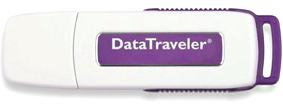
|
||||||||||||||||||||||||||||||||||||||||||||||||||||||
|
Every time Facebook moves, they stir up stuff. It happened when they first implemented the innovative news feed feature. All of a sudden you could keep up to date on who's-with-who without visiting their profile page. The users of Facebook had been counting on lack of interest, on obscurity, to keep information they consider private out of view of people, who, because they're "friends" have been granted access to the information. By automating the process, much as RSS readers automated news gathering for blogs and newspapers, the information was no longer obscure. Facebook held their ground, and now the news feed is part of the fabric of their community, and people presumably are a bit more careful about what they post. That's what they should have been doing all along, a safe computing expert would likely say. Now they're breaking down another barrier and of course there's a sense of violation, and I'm not saying that Facebook is right, but before we claim they're wrong, let's understand what's going on. There are thorny issues here, but we want these companies to give up control of our information, and we don't want them to be overly scared of public opinion as they do it. And this is hardly the most important giving up of control. Most important, I want them to give me control of my data. So before we overly politicize the leading edge of technology, let's get together on what actually does and doesn't serve the user's interest. I want Netflix and Yahoo to give me an XML version of my movie ratings, for me to decide what to do with. I've been asking for this for a couple of years, I still don't have it. This is information I created. I want to keep a copy. I want to make sure that Netflix knows about all my Yahoo ratings and vice versa. I'd like to give a copy to Facebook (assuming they agree to not disclose it) and maybe to Amazon, so they can recommend products I might want to purchase (again keeping it to themselves). I want to begin a negotiation with various vendors, where I give them something of value, and they give me back something of value. The leaders of Silicon Valley begrudgingly gave up their view of us as couch potatoes, now they think of us as generators of content they can put ads on (and pay us nothing). We still need to work on that respect thing. When I have an XML file here on my local hard drive that they want they'll make me a better offer. Two companies that are not as shiny as they used to be, Netflix and Yahoo, have the power to take a leadership role in a what will be the next revolution of the Internet, but neither of them are moving. That's something worth fighting for, because once one vendor gives us power over our data, the dominoes will start falling, I bet it'll happen very quickly. Okay it is Black Friday... And I want to help the world economy, so... As an act of patriotism... I purchased one of these babies... For Saturday delivery! Click the pic for the Amazon product page. PS: Thinking about getting one of these, to capture over the air broadcasts. Is that what it does?? This OPML Editor script takes a folder of images, and turns it into an RSS 2.0 feed with enclosures, and optionally uploads the images to S3. It could easily be converted to handle other data types. I'm publishing this so it shows up in Google, making it easy for me to find it later. If you want to use, feel free, no support, every caveat applies. You're probably better of coding this from scratch yourself. I took this pic in Dec 2005 in post-Katrina New Orleans. Another, less impulsive, purchase I also bought three of: Because... 1. They're easy to lose or misplace. 2. They're damned useful. 3. On sale, 3-for-the-price-of-1! Hope you had a great party yesterday! Now comes the aftermath... Cold turkey in the fridge. Turkey soup on the stove. Did you go shopping at 4AM? Yawwwwn. Time for coffee. |
Dave Winer, 52, pioneered the development of weblogs, syndication (RSS), podcasting, outlining, and web content management software; former contributing editor at Wired Magazine, research fellow at Harvard Law School, entrepreneur, and investor in web media companies. A native New Yorker, he received a Master's in Computer Science from the University of Wisconsin, a Bachelor's in Mathematics from Tulane University and currently lives in Berkeley, California. "The protoblogger." - NY Times.
"The father of modern-day content distribution." - PC World.
One of BusinessWeek's 25 Most Influential People on the Web. "Helped popularize blogging, podcasting and RSS." - Time.
"The father of blogging and RSS." - BBC.
"RSS was born in 1997 out of the confluence of Dave Winer's 'Really Simple Syndication' technology, used to push out blog updates, and Netscape's 'Rich Site Summary', which allowed users to create custom Netscape home pages with regularly updated data flows." - Tim O'Reilly.
My most recent trivia on Twitter. On This Day In: 2006 2005 2004 2003 2002 2001 2000 1999 1998 1997.
|
|||||||||||||||||||||||||||||||||||||||||||||||||||||
|
© Copyright 1997-2007 Dave Winer. Previous / Next |
||||||||||||||||||||||||||||||||||||||||||||||||||||||
 A few weeks ago I not only gave $100 to MoveOn.org, but I also encouraged readers of this blog to do so. Now I regret it. Why? Well, I gave them the money thinking I was supporting a group that was working to end the war in Iraq. Now they've launched a campaign against Facebook, a naive one, and in what way is that consistent with the goals of the organization I gave money to?
A few weeks ago I not only gave $100 to MoveOn.org, but I also encouraged readers of this blog to do so. Now I regret it. Why? Well, I gave them the money thinking I was supporting a group that was working to end the war in Iraq. Now they've launched a campaign against Facebook, a naive one, and in what way is that consistent with the goals of the organization I gave money to? 




